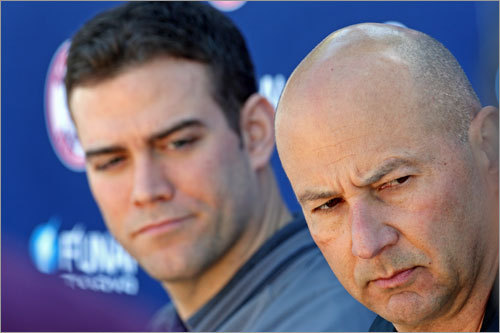Last year I think I went to 5 weddings (including my own). I'm realizing that this is actually a moderate-to-small number; some of my friends attend as many as 10 in a year! But I could go to 100 and I doubt I would get sick of it. There is absolutely no celebration like a wedding, and the American one has its fair share of quirks.
 During my engagement I found a book dedicated to exploring the American wedding industry, which (thankfully) did more to balance my perspective than anything else could. When one is in the midst of a long-term wedding operation, rationality is a difficult thing to hold onto. My fellow fiancées and I occasionally remarked on the surprising pull of the industry's message. It seems odd to think that something as eclectic as a wedding can speak with the unified voice of an "industry", but I honestly think I have never heard such a powerful (yet subtle), organized (yet unaffiliated) declaration of intent. And that intent is clear: get the bride.
During my engagement I found a book dedicated to exploring the American wedding industry, which (thankfully) did more to balance my perspective than anything else could. When one is in the midst of a long-term wedding operation, rationality is a difficult thing to hold onto. My fellow fiancées and I occasionally remarked on the surprising pull of the industry's message. It seems odd to think that something as eclectic as a wedding can speak with the unified voice of an "industry", but I honestly think I have never heard such a powerful (yet subtle), organized (yet unaffiliated) declaration of intent. And that intent is clear: get the bride.Oh, but we want to be gotten! We long nearly from our cribs to be captured and seduced and finally slaughtered by that beautiful and dangerous Wedding. We are brides for Halloween and frequent playground actors. We nearly drool at our former babysitter as she glides in white down the church aisle bestrewn with flower petals. We are victims, and we never had a chance.
And finally our time comes. Beset with our diamond proof of legitimacy, we slam down every wedding magazine Border's has to offer on the cashier's counter. Finally we are in that position to be able to groan with faux exhaustion about all of the decisions we have to make in the next 9 months.

But at some point, a little bit of panic does set in. What if roses aren't exactly my flower? What do roses say about me? Will people know I'm classic and not boring? What about my dresses? Are they stylish, or tacky? Does this table setting exhibit my slight bent towards the urban exotic while paying a passing contribution to my love for early American architecture? What in the world can we have besides chicken and fish!?
I should have seen it coming, but I was honestly blindsided by the inherent and extremely strong expectation by Wedding, Inc. that this day should be the Culmination and Expression of our entire Mental and Personal Identity. Needless to say, it is difficult to express a human personality in the subtleties of red velvet versus lemon raspberry.
The author of the previously mentioned wedding book made an interesting observation on the purpose of such a message. Previously (in the 1800s or 'bout then), women spent much of their teenage years needlepointing and knitting and quilting--preparing for wedding and womanhood. The wedding display was meant to express the readiness of this woman to be a wife. Nowadays we have a similar, but more modern version of this aspiration. The vendor organization, the executive decision-making in food and in color and in dress--all of these planning skills show the worthiness of the bride to take on the modern responsibilities of the American Household. Essentially, it is a crash course on project management. And an effective one at that!
I admit I was confused and beset by by the bridal lie that my honor as a bride depended on the notoriety of my place settings. But at the end of my engagement I was happily able to enjoy my wedding without being personally limited by that single (allegedly) climactic day. Yes, I chose red roses. Yes, we had a city wedding. And no, post-wedding I have not found myself suddenly bound to and limited by my choice of favors, music or cake. Instead, I have come away with something marvelously better than anything the giant, authoritative wedding industry was able to offer--a great marriage.



